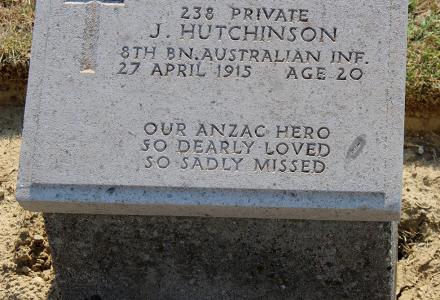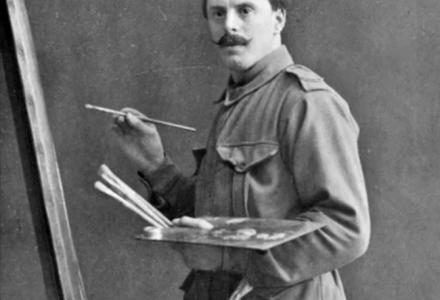Gordon Wallace, a labourer from Warrnambool, enlisted in 1916. A shell tore his face to pieces in the third battle of Ieper. Private Wallace was evacuated from the Belgian battlefields to England. He would spend as much of his war in hospital as he had in the field and came to be known as a ‘difficult patient’. Wallace, it was noted, was ‘frequently intoxicated’, ‘a great nuisance in the ward’ whose complaints kept others awake.
Gordon Wallace was discharged in 1921, but ‘a face case’ as bad as this never really recovered.
Digesting anything at all was difficult. Wallace suffered searing pains in his gut as the food moved through him. Then, often as not, he’d throw up what he’d eaten. Eating itself proved a challenge. Every ‘meal’ was mashed to a pulp. With most of his teeth shattered by a shell blast he could hardly chew anything.
The day after Anzac Day 1954, they dragged in Gordon Wallace’s body from the river. No one really knew how he came to be there. He’d simply had too much to drink, some said, and stumbled insensible into the Yarra. Perhaps it was the darkness of the night; or another of the dizzy spells Wallace sometimes complained of. Others wondered if the man with half a face had simply had enough. Water poured into a mouth that couldn’t close and drowned him in an instant.
Gordon Wallace’s wife Evelyn was left to mourn him. She had cared for him for over twenty years. Now she was expected to manage without his pension. ‘I have been to a tribunal’, she wrote to the Premier, ‘the Repatriation won’t accept his death as war related but the background of it all was due to war service … Gordon gave his life for his country and what is the country doing for him?
The authorities stood firm. They declared Gordon Wallace’s death was ‘entirely due to his own drunkenness’. Evelyn Wallace died in 1956, two years after they pulled her husband’s body from the river. She never received her pension.
Gordon Wallace’s story reminds us that women were casualties of war alongside their menfolk. Evelyn herself suffered years of physical and emotional abuse from her husband. He was often ‘very cruel’, frequently drunk, and always unable to care for himself. Like a generation of women, her life was made ‘a misery’. To deny such a woman a pension added insult to injury. It revealed the male bias of the repatriation system and a callous disregard for human suffering.
For full attribution of sources, suggestions for further reading and an extended version of the story itself see ‘The man with half a face: Gordon Wallace’ in Bruce Scates, Rebecca Wheatley and Laura James, World War One: A History in 100 Stories (Melbourne, Penguin/Viking, 2015) pp. 119-122; 357.



